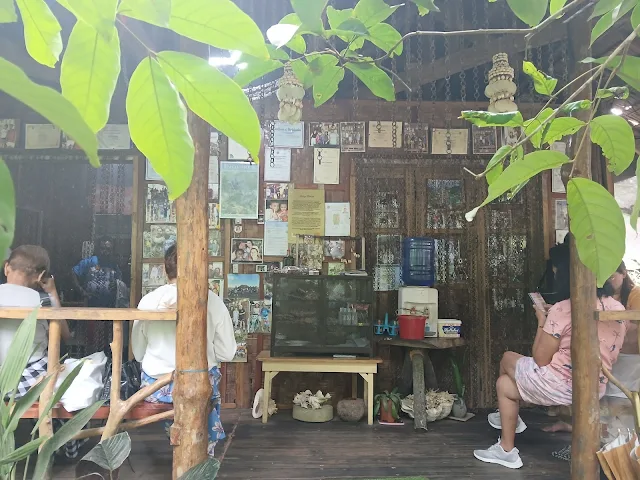Traditional Healing in Siquijor: My Tuob Experience at Balay Pahauli
When we were in Siquijor, I couldn’t help but notice the shouting tourism tagline of the island: “Healing Paradise.” But where exactly is the healing in the beaches and waterfalls? Ah, perhaps, when you go there, your soul is healed by nature—just by exposing yourself to the beautiful places in Siquijor. I believe there's more to this "healing" than meets the eye.
I’ve always known Siquijor as a mystic island—the one province in the Philippines with a reputation for mythical creatures like aswang and mangkukulam. And if we dig deeper, Siquijor is also known for traditional healing—something that goes beyond the physical. It's mystical. It's spiritual. It's something for the soul.
If this is the kind of experience you're looking for, then I think Balay Pahauli is a place you should definitely include in your itinerary. Originally, we didn’t plan to go there because we had limited time in Siquijor. But someone suggested trying their traditional hilot and tuob, so we canceled a few other stops and decided to head to Balai Pahauli instead. It made sense to include it—after all, before Siquijor became famous for its beaches and waterfalls, it was first known for its rich culture of healing. As a culture-vulture type of traveler, I knew this was something I had to experience.
I didn’t expect much, but I was sure it was something I wanted to try. I noticed we were heading uphill. The healing hut is located in the mountainous area of Barangay Cantabon, but don’t worry—the road is accessible and fully paved. When we arrived, the place wasn’t anything fancy. It was a simple hut—not grand or eye-catching. Outside the house, there was a sign that read “Balay Pahauli,” which means “Healing Hut.” The wooden signage bore the name Juanita Torremocha, a local practitioner of tuob and hilot.
When we entered the hut, a woman greeted us warmly and asked us to wait. The place was calm and silent. A few customers were leaving since it was still early in the morning. Soon, we were met by a man—clearly not Juanita, but her husband, Noel Torremocha, who is also a practitioner of tuob. He began preparing everything for the session, and one by one, we experienced what tuob was all about.
First, he made us wear a white gown—just like the ones you wear in a barbershop. Then, he read our pulse and our palms. Right there and then, he identified what was bothering us physically. He began the fumigation by placing various ingredients into a palayok (clay pot), which was placed under the chair I sat on. Manong Noel told me the ingredients were a mixture of wood gathered from the forest and the sea seven Fridays before Good Friday. Allegedly, this tuob helps restore not only your physical health but also your spiritual well-being, driving away negative energy.
He then went to a small altar lined with bottles of oil. After a quick prayer, he returned to me with one of the oils. He marked a cross on my forehead, then on both temples, and finally on the back of my neck. He blew air gently over each spot. After a few minutes of inhaling the aromatic smoke—letting it deeply penetrate my senses—the session ended.
What did I feel afterward? I felt relaxed and light. Nothing dramatic, but whether it was psychological or not, it felt like a reset for me. I guess you’ll only understand it once you try it yourself.
Outside the tuob room, there were plenty of healing products for sale—love potions, oils, amulets, and more. Anything you can think of that’s related to healing, they had it. Certificates of legitimacy hung on the walls, along with photos of celebrities and public figures who had also visited the hut for their own tuob experience.
It was truly a one-of-a-kind experience for me. I’m not usually one to believe in these things, but if it’s traditional and has been proven effective by our ancestors, I don't think it hurts to give it a try.








Comments